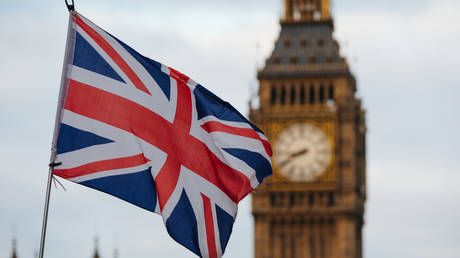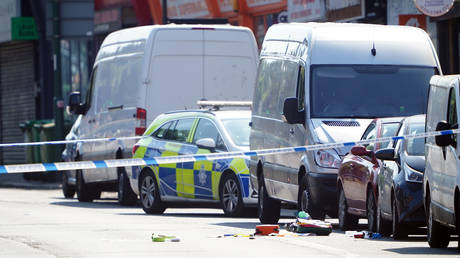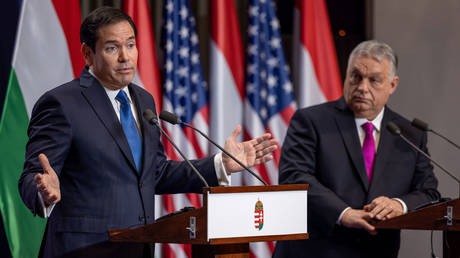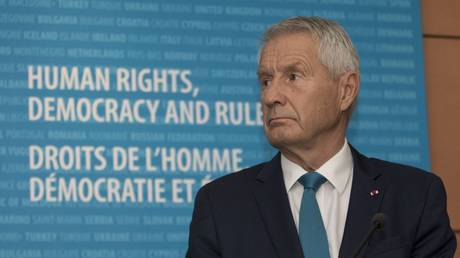
The UK hit list has been updated to add 59 individuals and organizations
Britain has frozen the assets of more Russian and Belarusian individuals and entities in response to the Ukraine conflict, with bankers and industrial organizations among the latest targets.
The British Foreign, Commonwealth and Development Office issued a notice on Thursday saying that 59 more entities and citizens will be subject to asset freezes in the UK, barring them from visiting the country.
The head of Russian Sberbank, German Gref, as well as the head of Tinkoff Bank, Oleg Tinkoff, were among other businessmen and individuals, hit by the newly imposed measures.
Among other targets, the British government sanctioned the supposed stepdaughter of the Russian Minister of Foreign Affairs, Sergei Lavrov.
“There are reasonable grounds to suspect that Polina Kovaleva…is associated with the Russian Foreign Minister, Sergei Lavrov through her mother’s relationship with him,” the document states, adding that Lavrov, being a Russian “key decision-maker”, was involved in the attempts to destabilize Ukraine.
The list of organizations, falling under new sanctions, included Russian banks Gazprombank, Rosselkhozbank and Alfa-Bank, as well as Russian Railways, ship-owning company Sovcomflot and energy company Rushydro.
“What does it mean for us? We are working as usual…The only limit is: we are suspending settlements with British contractors,” an Alfa-Bank representative told the Russian news outlet RBC in response to the new restrictions.
“Sanctions, imposed by Great Britain, won’t affect the activities of Rosselkhozbank. The bank has no assets in Great Britain, all primary activities of RSKHB are concentrated on Russian territory”, said a representative for Rosselkhozbank.
Nine Belarusian entities and individuals, including the State Authority for Military Industry, the Minsk Wheel Tractor Plant and several military-industrial enterprises were also added to the list of entities targeted by British sanctions.
Britain said the purpose of the new sanctions was to “encourage Russia to cease actions destabilising Ukraine or undermining or threatening the territorial integrity, sovereignty or independence of Ukraine.”




